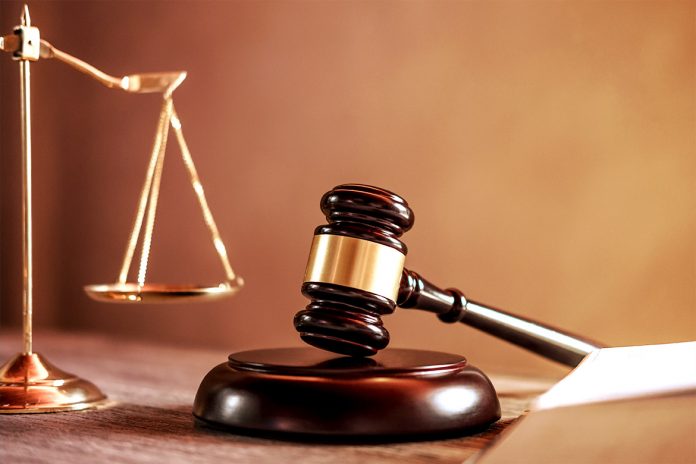Bhubaneswar: Some days back, the chief justice of the Supreme Court, N. V. Ramana came to Odisha. What he said at a government function in Cuttack is a matter of concern for all of us. He said it is difficult for the general public to understand the language of Indian laws. As far as the Indian judiciary is concerned, the common man lives up to the rule of law. As a result, he considers himself an outsider within the legal system. So the judicial system of India needs to be such that it is easy and convenient for the common people. No matter how proud we are of our democracy, such a confession on the highest judicial system of the country by the incumbent is a matter of self-reflection. For a citizen, the legislature and the executive are as important as the judicial system. When a person is deprived of his or her rights under the above two provisions or is a victim of the court, his or her only hope is Justice. If this is the case with the judiciary, then what would a poor, downtrodden person do?
Article 14 and 21 of the Constitution of India ensures equal rights and justice for every citizen of India. The Right to justice which is also called ” access to justice” is a fundamental right. Similarly, under Article 37 A, the responsibility of the government is to ensure that no citizen of the country is deprived of Justice for any reason. In 2014, when T.S Thakur was the chief justice of the Supreme Court and a constitutional bench headed by him delivered an important judgement saying that the right to justice is a fundamental right and it is the responsibility of both the state and the central government to ensure it. There have been many reforms at various times in the judicial system, but what is yet to come is the most important amendment. That is, the official language used in court still has that English language, not the mother tongue. The big question here is why in the court, all the papers, notices, copies, investigation reports of the verdict etc. are in English not in the local mother tongue. In various states, the government has enacted laws to introduce the mother tongue of that state, but so far it has not been able to implement it in the judiciary. Even in Odisha, the process of teaching law in colleges have not been started yet, a judicial procedure in the Odia language is far away. Language is the means of communication. It should not be a burden in any case. According to 2011 census data, only 13 crore people can read, write and understand the English Language. Don’t the rest 122 crore population has any rights over the jurisdiction. Are those 122 crore people not entitled to justice?
Let’s come to another topic which is often discussed. It is about the delay in the process of trial and the culprit escapes unpunished. A few years ago, there was a wave of happiness across the country when police killed the culprits of the Priyanka Reddy rape case in Hyderabad. People showed their happiness on social media and television screens as well as cheered the police. This encounter was right in the public eye. The reason behind this is people are unhappy with the delayed trial and defendants in various cases are getting acquitted due to lack of evidence, raising questions about the flaws in the judiciary. The trial of the much hyped Nirbhaya rape and murder case was done in fast track court, But the culprits stayed in jail comfortably at the government’s expense for seven long year’s after their sentence to hang. In the case of Pipilli, Odisha gang rape case the guilt of the culprit could not be proven. The rape victim had told the name of the culprits to the police in front of the magistrate before her death. However, that was not enough for the judiciary, so all the perpetrators were acquitted. The same had happened in Kunduli Tikiri incident. Of course, the judiciary alone can’t be blamed here, the investigating agencies are responsible for this, but it is also proved that the judiciary is dependent on the investigating agencies. That is another major problem of the judiciary. This plays an important role in people losing confidence in the judiciary. The judiciary can not do anything if the police fail to provide evidence.
There is a big difference between the Indian judiciary and American Judiciary. In the Indian judiciary, the culprit is not declared guilty until he/she is found guilty. But in America, the defendant is guilty until he doesn’t prove his innocence. In our country, it is the job of the government to prove that whether a person has committed any crime. But in the United States, the perpetrator has to prove his innocence then only he can be acquitted. In our country, the investigating agencies take indefinite time to complete the investigation. And the judiciary would be waiting for the police to file their final complaint copy.
It is time to bring reform to our country’s judicial system. The judicial system has also become expensive. So the justice can not reach the poor. It is almost impossible for a common middle class, lower middle class and a poor man to fight in High Court or Supreme Court. Ordinary people would not be deprived of justice if Supreme court benches were set up in different states of the country. Similarly, within the states also different high court bench should be set up. This has been a constant demand in Odisha since long. A retired judge of the Supreme Court, Markandeya Kataju had written in a newspaper in 2019, the number of pending cases in India will take another 360 years to complete. In July this year, the chief justice made a keynote speech at a seminar. He said those who are financially and politically powerful, take advantage of some laws that exist in the judicial system to delay the trial time and again, which affects the whole judiciary.
Similarly, less number of judges led. is also another problem. There are 455 vacancies in different state high courts, around 5000 vacant for judges in lower courts are vacant. There are ten posts judges positions vacant in Supreme Court. Another thing is that in other departments of the government, the use of technology has led to reforms in the way management is done, and such technology is not being used in the judiciary. The judiciary in our country is still running with piles of papers and files.
In the preamble to the Constitution, we write that it is the responsibility of the country to bring justice to all the people of the country. Late justice is not justice. However, all these remain only in the books. The judicial system needs urgent reform. The British ways of the judiciary have to bring to the Indian way.
-OdishaAge




















